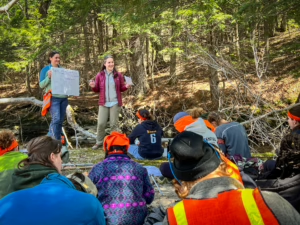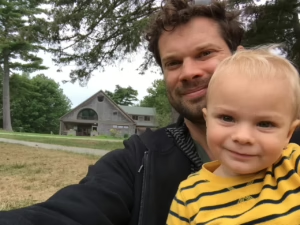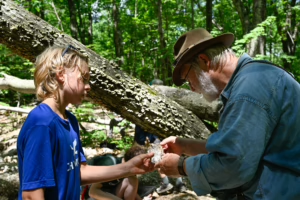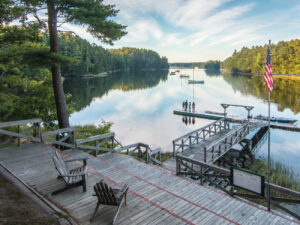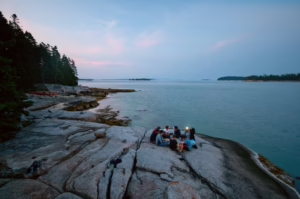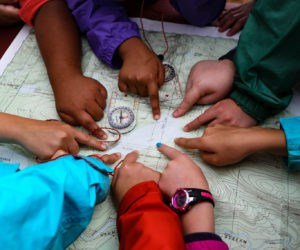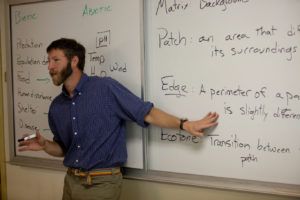
The abrupt, nationwide shift to remote learning this spring was more than unexpected, it was stunning. But perhaps we shouldn’t be shocked by what came next: Maine Coast Semester at Chewonki, a program designed around experiential, place-based pedagogy and deeply connected to the physical location of Chewonki Neck, successfully adapted to a remote academic environment. “Learning continued,” says Pete Sniffen, dean of academics. “Students challenged themselves. [They] fell behind and then made big pushes to catch up. People had good progress… and felt proud.”
Truth be told, expectations for remote learning were low. Closing campus was an incredibly difficult decision for students and faculty alike. Questions proliferated, but answers were in short supply. After the first week, however, Sniffen was surprised to find that he was still really looking forward to classes. So were his students, who were asking for more time anyone expected. “Just like at Chewonki, I was always teaching right up to the last minute and wishing that classes wouldn’t end,” said Pete. “We really did continue the class – the same class. It was less than, but still good.”
Sniffen was also surprised to learn that many of the same principles used to build community on campus and in the wilderness translated to an online environment. “It requires a different kind of framing to get student buy-in. But, [our students] were willing to jump in.” One particularly successful example is the optional solo experience coordinated by Julie Barnes, dean of student life. Over half of the semester participated and “the work that Julie did to scaffold the experience was tremendous,” Sniffen said. Students challenged themselves to set intentions, dive into the experience and reflect – creating meaningful experiences out of the unusual circumstances.
Not everything about remote learning was rosy, however, there were many thorns as well. First, Sniffen said that he felt genuinely sorry that students could not return to campus. Maine Coast Semester is a once-in-a-lifetime experience. Although Chewonki has made space for many semester 64 students to return in the fall and spring, the majority of students will not get a second chance at attend Maine Coast Semester.
Another big thorn relates to a pattern playing out across the country: schools are finding that students who have learning differences and mental health issues struggle the most in a remote learning environment. At Chewonki, for example, each student receives an incredible amount of individual attention. Our student-teacher ratio is 3:1 and numerous strategies are in place to support students with different learning styles. But, approaches that work well in a boarding-school environment where faculty live on-site don’t easily translate to a remote setting. There wasn’t much time to design an effective solution after the problem was identified, either. Sniffen feels deeply for the students across the country who fell behind this spring.
Still, Sniffen feels hopeful. “Anytime we’re forced to solve a problem in a new way, we learn”, he explains. Restructuring assignments forced faculty to rethink the material and consider new ways to educate students and Sniffen thinks that there may be elements of this that creep into our in-person teaching. He also feels much more prepared if schools have to quickly shift towards remote learning in the future.
In-person learning will always be the gold standard at Chewonki, but it’s great to know that we have the capacity to grow and change. Thanks to all the faculty and staff who worked tirelessly to make this remote semester possible, and to semester 64, for your grit and grace in the face of exceptional circumstances.


